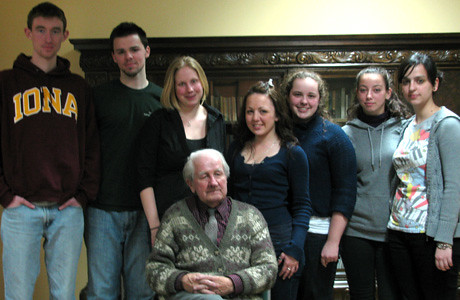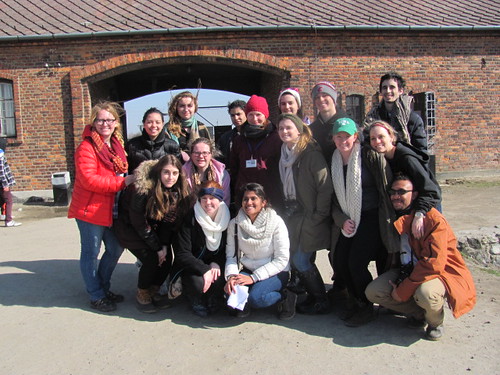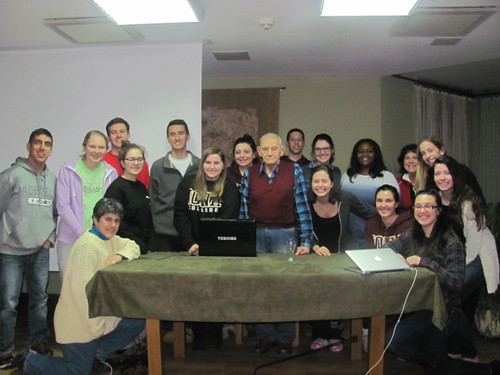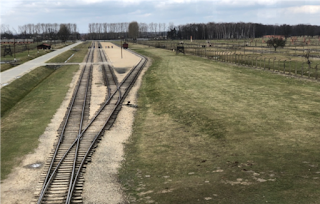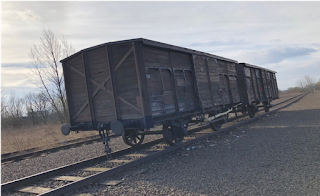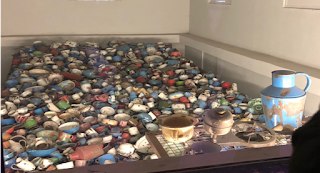It has been a week since returning from Poland and I have had a lot of time to reflect and think about my experience and all of the knowledge that I acquired since being there. Since being home, many people have asked me how the experience was, whether it was enjoyable or not, or whether or not I had fun. Fun? Fun is not the right word to use when describing the experience. It has taken me time to process everything and be able to put into words how this experience was, and I can truly say it was an eye-opening experience that allowed me to expand my knowledge of the holocaust.
Throughout my time in Poland, there were some difficult days and days that were harder than others, especially the days where we walked through the camps and heard the stories of the prisoners. With each story I heard I tried to imagine myself as a prisoner and what it would be like in the camps and I could not process it. I do not think that I would have lasted longer than a week! Returning from the camps on those difficult days, I would head straight to my room and sit in bed thinking about everything I just learned about and what I saw. A lot of days were emotional. Meeting past students who had gone on the trip, and hearing their stories of the emotions you would feel, made it easier to get through those days. Hearing them tell us it would be okay to cry or not cry helped tremendously. I also felt that the reflections really put into perspective what I saw that day or what I was feeling.
Throughout my time in Poland, I realized that some of what I have learned about the Holocaust, especially in school, has been false or not entirely true. This made me realize that my goal after returning from the trip is to educate others on the events that took place during the Holocaust. How the events took place; why they took place; who tried to help. The education system/curriculum needs to revise what they teach in schools about what took place during the Holocaust. It is important to educate students properly and truthfully so that we can learn from history and hopefully be able to prevent another heinous crime such as this, from happening again.
Many of these prisoners were extremely brave and showed tremendous courage. One prisoner who showed courage and was brave and that stood out to me, was Maximillian Kolbe. He volunteered to take the place of a prisoner who was going to be sent to death after calling out for both his wife and children. Maximillian was sent to a starvation room where he died. This story has stuck with me the most because I thought about what I would do in his position, would I had volunteered to take a prisoner’s place? I honestly do not know if I would be as brave and courageous as he was. I would hope that the strength and resilience, the faith and courage that the prisoners showed during this horrible time will continue to be documented, so that schools will continue to educate students on the events that occurred during the Holocaust, so that it is never forgotten, that the people will always be remembered, and that something like that will never happen again.
Throughout my time in Poland, there were some difficult days and days that were harder than others, especially the days where we walked through the camps and heard the stories of the prisoners. With each story I heard I tried to imagine myself as a prisoner and what it would be like in the camps and I could not process it. I do not think that I would have lasted longer than a week! Returning from the camps on those difficult days, I would head straight to my room and sit in bed thinking about everything I just learned about and what I saw. A lot of days were emotional. Meeting past students who had gone on the trip, and hearing their stories of the emotions you would feel, made it easier to get through those days. Hearing them tell us it would be okay to cry or not cry helped tremendously. I also felt that the reflections really put into perspective what I saw that day or what I was feeling.
Throughout my time in Poland, I realized that some of what I have learned about the Holocaust, especially in school, has been false or not entirely true. This made me realize that my goal after returning from the trip is to educate others on the events that took place during the Holocaust. How the events took place; why they took place; who tried to help. The education system/curriculum needs to revise what they teach in schools about what took place during the Holocaust. It is important to educate students properly and truthfully so that we can learn from history and hopefully be able to prevent another heinous crime such as this, from happening again.
Many of these prisoners were extremely brave and showed tremendous courage. One prisoner who showed courage and was brave and that stood out to me, was Maximillian Kolbe. He volunteered to take the place of a prisoner who was going to be sent to death after calling out for both his wife and children. Maximillian was sent to a starvation room where he died. This story has stuck with me the most because I thought about what I would do in his position, would I had volunteered to take a prisoner’s place? I honestly do not know if I would be as brave and courageous as he was. I would hope that the strength and resilience, the faith and courage that the prisoners showed during this horrible time will continue to be documented, so that schools will continue to educate students on the events that occurred during the Holocaust, so that it is never forgotten, that the people will always be remembered, and that something like that will never happen again.




